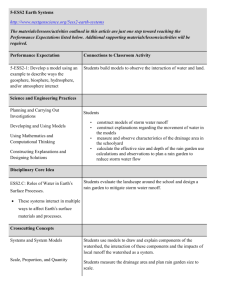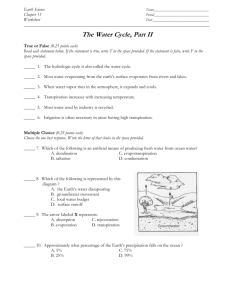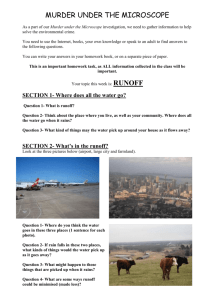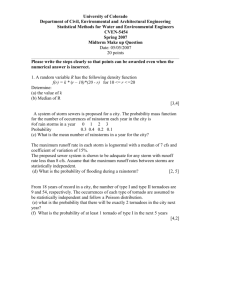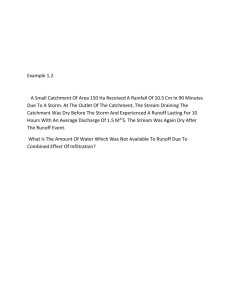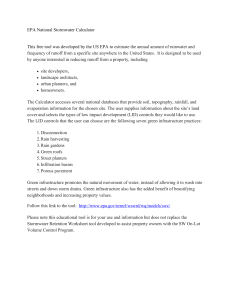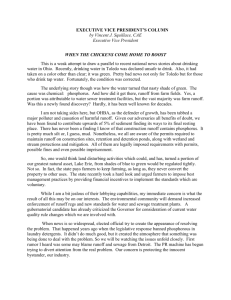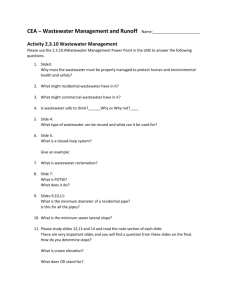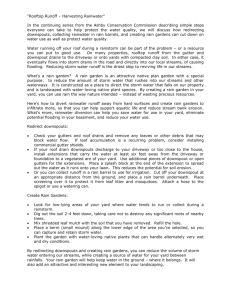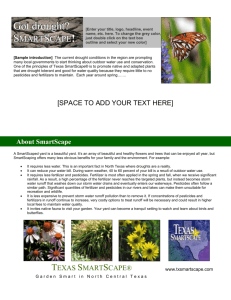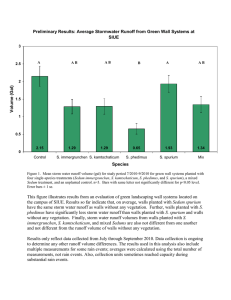Stormwater Runoff
advertisement
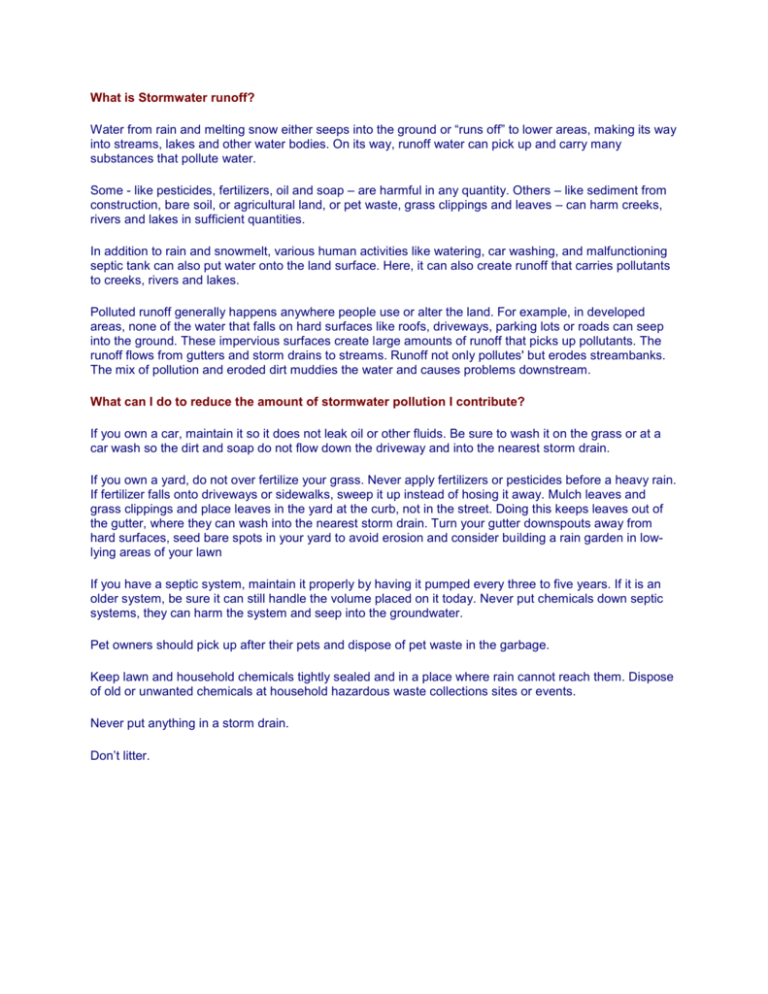
What is Stormwater runoff? Water from rain and melting snow either seeps into the ground or “runs off” to lower areas, making its way into streams, lakes and other water bodies. On its way, runoff water can pick up and carry many substances that pollute water. Some - like pesticides, fertilizers, oil and soap – are harmful in any quantity. Others – like sediment from construction, bare soil, or agricultural land, or pet waste, grass clippings and leaves – can harm creeks, rivers and lakes in sufficient quantities. In addition to rain and snowmelt, various human activities like watering, car washing, and malfunctioning septic tank can also put water onto the land surface. Here, it can also create runoff that carries pollutants to creeks, rivers and lakes. Polluted runoff generally happens anywhere people use or alter the land. For example, in developed areas, none of the water that falls on hard surfaces like roofs, driveways, parking lots or roads can seep into the ground. These impervious surfaces create large amounts of runoff that picks up pollutants. The runoff flows from gutters and storm drains to streams. Runoff not only pollutes' but erodes streambanks. The mix of pollution and eroded dirt muddies the water and causes problems downstream. What can I do to reduce the amount of stormwater pollution I contribute? If you own a car, maintain it so it does not leak oil or other fluids. Be sure to wash it on the grass or at a car wash so the dirt and soap do not flow down the driveway and into the nearest storm drain. If you own a yard, do not over fertilize your grass. Never apply fertilizers or pesticides before a heavy rain. If fertilizer falls onto driveways or sidewalks, sweep it up instead of hosing it away. Mulch leaves and grass clippings and place leaves in the yard at the curb, not in the street. Doing this keeps leaves out of the gutter, where they can wash into the nearest storm drain. Turn your gutter downspouts away from hard surfaces, seed bare spots in your yard to avoid erosion and consider building a rain garden in lowlying areas of your lawn If you have a septic system, maintain it properly by having it pumped every three to five years. If it is an older system, be sure it can still handle the volume placed on it today. Never put chemicals down septic systems, they can harm the system and seep into the groundwater. Pet owners should pick up after their pets and dispose of pet waste in the garbage. Keep lawn and household chemicals tightly sealed and in a place where rain cannot reach them. Dispose of old or unwanted chemicals at household hazardous waste collections sites or events. Never put anything in a storm drain. Don’t litter.
